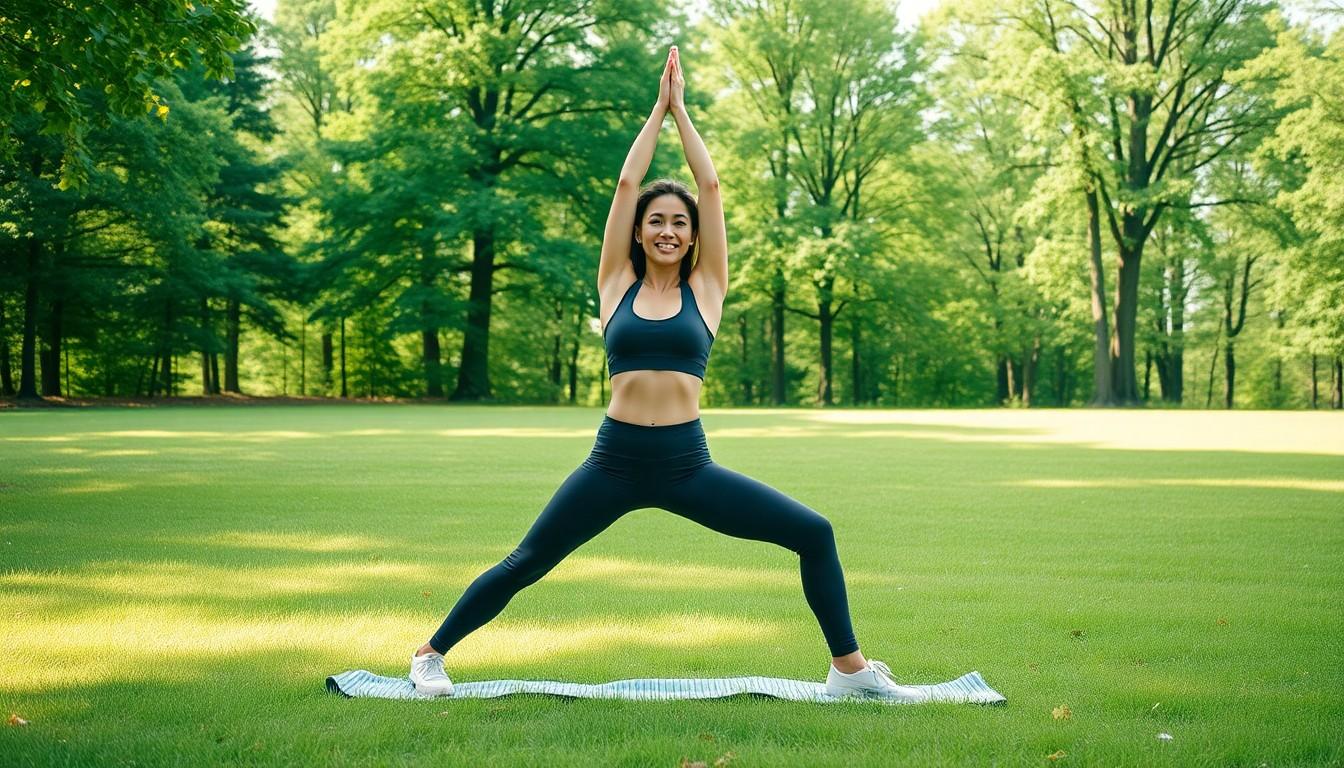Table of Contents
ToggleIn today’s fast-paced world, self-care often gets pushed to the back burner like last week’s leftovers. But let’s be real—neglecting self-care is like trying to run a marathon without training. It just doesn’t work! A solid self-care routine isn’t just a luxury; it’s essential for maintaining mental and physical well-being. Whether it’s indulging in a bubble bath or finally tackling that book on the shelf, prioritizing self-care can transform stress into serenity.
What Is a Self-Care Routine List?
A self-care routine list is a personalized collection of activities that promote physical, emotional, and mental health. This list serves as a guide to prioritize personal well-being. Developing a self-care routine involves identifying activities that provide relaxation, rejuvenation, and joy.
Such routines can include simple actions like taking a walk, journaling, or practicing mindfulness. Activities often vary based on individual preferences and lifestyles. They may encompass hobbies, relaxation techniques, or fitness routines.
Consistent engagement in self-care practices leads to improved stress management and overall health. People who regularly follow self-care routines often experience enhanced mood and productivity. Research indicates that self-care significantly reduces the risk of burnout. Creating a list enables clear insights into which activities resonate most.
Incorporating a variety of actions within a self-care routine list can cater to different needs. For instance, physical activities like yoga may complement creative outlets like painting. Scheduling time for self-care ensures that these practices are not neglected amidst daily demands.
A thoughtfully crafted self-care routine list acts as a roadmap to maintaining balance in life. Individuals are encouraged to revisit and update their lists regularly, allowing for flexibility and adaptation over time.
Benefits of a Self-Care Routine

A self-care routine offers numerous advantages that significantly enhance overall well-being.
Physical Health Improvements
Engaging in self-care activities promotes better physical health. Regular exercise strengthens muscles and improves cardiovascular health. Consistent hydration boosts digestion and energy levels. Prioritizing sleep allows the body to recover and rejuvenate effectively. Nutritious meals contribute to a balanced diet and enhance immune function. Mindful practices, like yoga or stretching, increase flexibility and reduce tension. These factors collectively lead to lower stress levels and a more resilient body, resulting in improved long-term health outcomes.
Mental Health Enhancements
Self-care has a profound impact on mental health. Practices such as journaling help individuals process thoughts and emotions. Quiet moments for reflection or meditation reduce feelings of anxiety and promote clarity. Social connections, nurtured through self-care, support emotional well-being and reduce feelings of isolation. Setting boundaries during personal time fosters a sense of control and boosts self-esteem. Engaging in creative activities stimulates positive emotional experiences, directly linking creativity to improved mood. These mental health benefits contribute to a more balanced, fulfilling life.
Essential Elements of a Self-Care Routine List
A self-care routine list includes foundational elements that enhance well-being. Prioritizing a variety of practices can lead to significant improvements in overall health.
Mindfulness Practices
Mindfulness practices cultivate present-moment awareness. Techniques such as meditation, deep breathing, and yoga promote relaxation and focus. Engaging in these activities reduces stress and enhances emotional regulation. Individuals can allocate specific time daily for mindfulness exercises, strengthening their mental resilience over time. Incorporating gratitude journaling fosters positive thinking and appreciation, enriching daily experiences.
Physical Activities
Physical activities contribute greatly to overall well-being. Regular exercise, such as walking, running, or cycling, increases energy and reduces anxiety. Choosing a consistent routine, even for short durations, boosts mood and physical health. Participating in group classes can enhance motivation and social connections, making exercise enjoyable. Exploring different forms of movement, like dance or swimming, allows individuals to discover personal preferences while staying active.
Nutrition and Hydration
Nutrition and hydration play critical roles in self-care. Consuming a balanced diet filled with fruits, vegetables, whole grains, and lean proteins supports physical health. Planning meals can ensure a consistent intake of nourishing foods, promoting stable energy levels. Drinking sufficient water throughout the day keeps the body hydrated, enhancing concentration and physical performance. Mindful eating practices, such as savoring each bite, improve digestion and foster a healthy relationship with food.
Tips for Creating Your Own Self-Care Routine List
Creating a self-care routine list involves identifying what resonates best on a personal level. Tailoring this list to individual preferences ensures a more meaningful engagement with self-care practices.
Personalization
Personalization forms the foundation of an effective self-care routine. Individuals should reflect on their needs, preferences, and lifestyle to curate activities that resonate. Incorporating activities like yoga, painting, or reading can enhance emotional well-being. It’s essential to include both energizing and calming activities, catering to varying moods and energy levels. Evaluating personal values also helps in selecting meaningful self-care practices. Incorporating personal interests enhances the overall enjoyment and commitment to the routine. Regularly revisiting and adjusting the list keeps it relevant and aligned with personal growth.
Setting Realistic Goals
Setting realistic goals helps maintain motivation and consistency within a self-care routine. Establishing small, achievable targets ensures success and builds confidence over time. Individuals should start with one or two activities per week, gradually increasing their commitment as they become comfortable. Keeping the goals manageable prevents feelings of overwhelm and fosters a sense of accomplishment. Emphasizing progress over perfection aids in maintaining enthusiasm for self-care. Tracking progress through a journal or app can also provide valuable insights, allowing individuals to celebrate their achievements along the way.
Prioritizing self-care is essential for maintaining balance in a hectic world. A well-crafted self-care routine list empowers individuals to take charge of their well-being. By incorporating a mix of activities that resonate personally, they can effectively manage stress and enhance their overall health.
Regularly updating this list ensures it remains relevant and effective. It’s not just about the activities themselves but also about fostering a mindset that values personal care. Embracing self-care leads to a healthier lifestyle and a more fulfilling existence. Taking the time to nurture oneself is a powerful investment in both mental and physical health.





